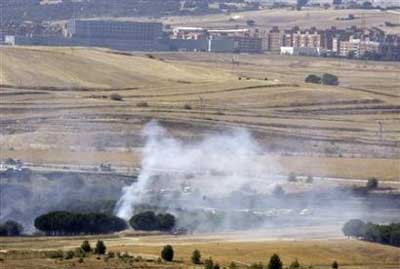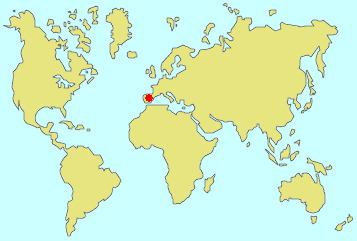Spanair MD-82 plane crash
Madrid, Spain

Updated on

The McDonnell Douglas MD-82 belonging to the Spanish airline Spannair was on a passenger flight from Madrid, Spain, to Las Palmas, Spain (Canaria). 162
passengers and 10 crewmember were onboard. The plane crashed on takeoff and caught fire. A total of 154 people were killed, and 18 people escaped alive,
with minor or severe injuries (mainly burns).
The flight had a scheduled departure time of 13:00, and left the gate shortly afterwards, but the fatal take-off run occurred nearly two hours later. The
first take-off attempt had to be aborted after technical issues: an air intake sensor had detected overheating while the jetliner was taxiing, causing the
plane to turn back and resulting in an inspection of the plane. Technicians corrected the problem by essentially turning the gauge off, according to the
standard accepted aircraft procedure (the device was not on a list of equipment that must be working for a flight). A few minutes later, the aircraft had
been released for flight.
The plane attempted a second take-off from runway 36L of Madrid-Barajas airport. The acceleration on the runway was rather long. The Spanair MD82 plane
managed to rise only slightly from Madrid's airport before coming down quickly to the right of the runway, its tail section hitting the ground first with
the right wing tip, just off the asphalt. Then the out-of-control plane skidded and bounced at least three times as it careered 1,200 meters (3,840 feet)
across uneven terrain and exploded. It finally came to rest in a gulley. The plane being at the beginning of its journey was full of fuel, which
contributed to inferno.
Your browser doesn't support HTML5 video.
Investigators discovered that the plane took off without deploying the slats and flaps. Those devices, installed on the wings, must be deployed for take-off in order to allow the plane to safely lift-off. But between engine start-up and when the flight-data recorder stopped (at the moment of the accident), the value registered of deflection of flaps was 0 degrees. This compares with the 11 degrees of deflection noted on the earlier, aborted takeoff. The pilots were unaware of the error due to the failure of an alarm normally triggered when an aircraft is not correctly configured for takeoff.
The aircraft, loaded with 10,130 liters (2,673 gallons) of fuel, reached an altitude of 40 feet thanks to the ground effect. The stall warning stick shaker was activated once airborne, and on three occasions the stall horn and synthetic voice sounded in the cockpit: "[horn] stall, [horn] stall, [horn] stall".
The aircraft took on a slight left roll attitude, followed by a fast 20º roll to the right, another slight roll to the left and another abrupt roll to the right of 32º. The maximum pitch angle recorded during this process was 18º. The plane stalled and crashed.
The last ten seconds of the cockpit voice recording reveal that before the impact, alarms from inside the cabin went off in a chaotic way. Conversations between the pilot and co-pilot were barely audible due to the ringing chaos within the cabin. But at the last moment, you can clearly hear a man screaming, a series of bangs and then silence.
This accident is the 20th worst plane crash since year 2000 in terms of the number of combined onboard and ground fatalities. Watch here the list of the worst aircraft crashes since year 2000.

